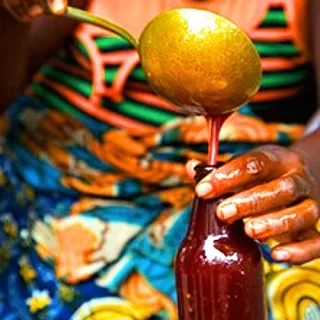True Traditional health practitioners in South Africa
The traditional South African practitioner culturally still plays an important role in 70 percent of patients in South Africa, especially through the use of Traditional Surgeons.
True Traditional health practitioners in South Africa Explained.
A traditional South African practitioner, also known as a sangoma or inyanga, is a practitioner of traditional African medicine in South Africa. These healers are highly respected members of their communities and are believed to be able to communicate with the spiritual world to provide healing and guidance to their clients.
Sangomas use traditional herbs, rituals, and divination techniques to diagnose and treat physical and spiritual illnesses. They are also believed to have the ability to connect with ancestral spirits, who can provide wisdom and guidance to the living.
Inyanga, on the other hand, specializes in herbal medicine and is known to prescribe various plant-based remedies to their patients. They may also use divination methods to diagnose illnesses and determine the most effective course of treatment.
Traditional South African practitioners are important to the country's cultural heritage. They are recognized by the government as important contributors to the health and well-being of their communities.
After a long training period, men and women take up the Traditional practitioner profession. The Traditional Healer may act as a therapist for issues of health, luck, love, dreams, sexual problems, or business ventures.
Traditional healing African techniques, principles, theories, ideologies, beliefs, opinions and customs, and uses of medicines come from the ancestors.
A true healer cannot participate in any action that can harm or negatively influence another person and believes God has the ultimate power; it is a spiritual calling. Traditional healing is linked to wider belief systems and remains integral to the lives of most Africans. People consult Traditional Healers whether or not they can afford medical services.
Definition of Traditional Health Practices.
Traditional health practice means the performance of a function, activity, process, or service based on a traditional philosophy that includes the utilization of traditional medicine or traditional practice by the maintenance or restoration of physical or mental health or function, the diagnosis, treatment, or prevention of a physical or mental illness, the rehabilitation of a person to enable that person to resume normal functioning within the family or community, the physical or mental preparation of an individual for puberty, adulthood, pregnancy, childbirth, and death.
Categories of Traditional health practitioners in South Africa.
Traditional practitioner medicine - an object or substance used in traditional health practice for the diagnosis, treatment, or prevention of a physical or mental illness or any medicinal or therapeutic purpose, including maintaining or restoring physical or mental health or well-being in human beings.
Subcategories of Traditional Medicine are:
Igqira elokuqubula—Massage therapist Traditional Healer
Igqira elokuqapula—Traditional Healer who vaccinates
Traditional healing philosophy- indigenous African techniques, principles, theories, ideologies, beliefs, opinions and customs, and uses of traditional medicines communicated from ancestors to descendants or from generations to generation, with or without written documentation, whether supported by science or not and which are generally used in traditional health practice.
Subcategories of Traditional philosophy are:
Igqira elemiciza—Traditional healer of herbs.
Isanuse—Traditional Healer Diviner of secrets.
Igqira elemishologu—Spiritual Traditional Healer
Igqira eliligogo—Traditional Healer who can see into the future
Igqira elamatambo—Traditional Healer who uses bones
Igqira elilicamagu—Traditional Healer faith healer
Traditional healing surgeon- healthcare practitioner at registered initiation schools who performs circumcisions and other cultural practices.
The practices of traditional African healing are rooted in the techniques, principles, theories, ideologies, beliefs, opinions, and customs passed down from ancestors. Traditional African healing involves using medicines and healing practices that have been used for generations, often passed down through oral traditions and cultural practices.
The principles of traditional African healing are deeply rooted in the belief that all aspects of life are interconnected and that an individual's physical, emotional, and spiritual well-being must be balanced to achieve overall health. Traditional African healing practices incorporate the use of natural remedies, such as herbs, roots, and barks, as well as spiritual practices, such as prayer, meditation, and ritual.
The use of traditional African healing practices varies across different regions and communities, reflecting the diversity of the African continent. Some practices, such as using herbal medicines, are common across many African cultures, while others are unique to specific communities.
Traditional African healing practices have faced challenges from modern Western medicine, often seen as more advanced and effective. However, in recent years, there has been a growing recognition of the importance of traditional African healing practices, particularly in the areas of mental health and holistic healing.
More links to articles you will find thought-provoking.
-
Dangerous Erupting Volcanoes of Africa

-
Top 20 Largest Countries in Africa

-
What is an African Proverb

-
African Water Spirit Mami Wata

-
Ancestors are Guardian Angels










